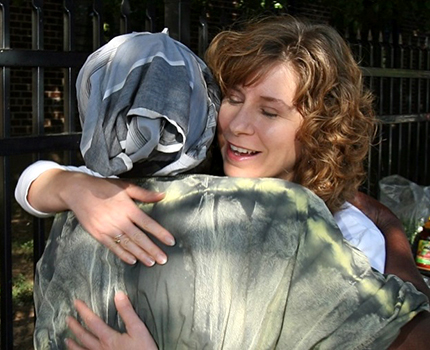IRAs and qualified retirement plans
Retirement plan assets are a major source of wealth for many households. For example, you may have hundreds of thousands of dollars invested in your IRA, 401(k), 403(b), or other qualified retirement plan. These plans do not pay tax on the income and capital gain realized by their investments. This allows their assets to grow faster than if you held and invested these assets outside of your retirement plan.
The primary purpose of your retirement plan is to provide you with income during your retirement, but it can also be an excellent source of funds for making charitable gifts during your life and when your plan ends.
Withdrawals are taxed as income
With the exception of the Roth IRA, the money used to fund a qualified retirement plan, such as a traditional IRA, 401(k), or 403(b), has never been taxed. Also, earnings that occur within a qualified retirement plan are not taxed. As a consequence, withdrawals from any of these plans (except for the Roth IRA) are taxed as ordinary income. Your federal income tax alone on a withdrawal from one of these plans could be as high as 37%.
Withdrawals are required once you reach 73 years old
You must start taking withdrawals from your qualified retirement plan once you reach 73 years old. The amount you must withdraw each year is a percentage of the value of your retirement plan as of the last day of the previous year. The percentage starts below 4% for someone who is taking their first “required minimum distribution” and increases with age according to a schedule published by the IRS.
Taxes on remaining retirement assets can be very high
Your family members and other heirs will have to pay income tax on any distributions they receive from your retirement plan after you are gone. In addition, your qualified retirement plan is included in your estate, so if your estate is large enough to owe estate tax, your plan may increase the estate taxes you owe.
Federal income tax alone can be 37%. When you add federal income tax and estate tax together, they can total 62% or more. In states that assess their own taxes on estates, the total taxes on retirement plan assets paid to heirs can be over 62%.
Give retirement plan assets to Baptist Mid-Missions Foundation and save taxes
In contrast to your retirement plan assets, your estate will not owe income tax on most of its other assets in addition to estate taxes that may be due. As a result, your estate and heirs will pay lower taxes if you pass your less heavily taxed assets to your heirs, and give your retirement plan assets to charity. Paying lower taxes will mean that more assets will reach your heirs. How much more will depend on the size of your estate, where you live, and the type of gift you make.
How do I make a gift of retirement plan assets to BMM Foundation?
You have several good options to make a gift of your retirement plan assets to us.
Option 1: Make a tax-free gift today with an IRA charitable rollover
You can make a tax-free gift by directing the administrator of your traditional IRA to transfer funds directly from your plan to BMM Foundation. You can instruct your IRA administrator to transfer the funds directly to BMM Foundation or to send you a check that is made out to Baptist Mid-Missions Foundation, Inc.
When you make an IRA charitable rollover gift, you won’t need to include the transferred funds in your income for that year and therefore will not pay any tax on them. If you were to withdraw the funds yourself and then make a gift to us, you would have to include the withdrawal in your income. Even if you take an offsetting income tax charitable deduction, the result could be more income tax for you to pay overall. You cannot make a IRA charitable rollover gift from other qualified retirement plans, such as SIMPLE or SEP IRAs, 401(k)s, or 403(b)s.
Another great feature of an IRA charitable rollover gift is that it counts toward the amount you are required to withdraw from your IRA for the year (your “required minimum distribution”), If you don’t need these funds for your own use, you can use them to make gifts to BMM Foundation and your other favorite charities and avoid paying income tax on these withdrawals.
The benefits of making an IRA charitable rollover gift include:
- Your withdrawal is not included in your income so it doesn’t affect your taxes.
- Your withdrawal counts toward your required minimum distribution for the year.
- You have the satisfaction of providing immediate support to BMM Foundation.
There are several requirements you must meet in order to make an IRA charitable rollover gift to BMM Foundation:
- Your distribution must be from your IRA.
- You must instruct your IRA administrator to make a distribution directly to BMM Foundation.
- You must be at least 70 ½ years old.
- The total of all your qualified charitable distributions for the year must be no more than $100,000.
- Your distribution cannot be made to a donor advised fund, private foundation, or supporting organization.
- You cannot receive any benefit in exchange for your gift.
Option 2: Designate remaining retirement plan assets for Baptist Mid-Missions Foundation
The simplest and most common way to give retirement plan assets is to make BMM Foundation a designated beneficiary of your retirement plan. All you need to do is file a new beneficiary designation form with the administrator of your retirement plan that designates BMM Foundation as a beneficiary of your plan. Your designation should name the percentage of the assets that remain in your plan when it ends that you want us to receive. Visit Bequest Language for Donors for more details.
The retirement plan assets that you designate for us will avoid all income tax and estate tax. In order for your estate to enjoy both of these tax benefits, it is very important that you make BMM Foundation the designated beneficiary of these retirement plan assets, not your estate.
Please identify us on the form with our legal name: Baptist Mid-Missions Foundation, Inc., PO Box 308011, Cleveland, OH 44130-8011 and include our Federal Tax Identification Number: 45-2782288.
Option 3: Designate remaining retirement plan assets for a life income plan
Another option for passing retirement plan assets to us is through a life income plan. Passing assets to us through a life income plan allows you to provide income to your loved ones after you are gone and then provide support to us. Here's how a life income plan works:
- Your retirement plan transfers the designated portion of its final balance to the life income plan that you have indicated on your beneficiary designation form.
- The heirs you have chosen receive payments from the plan each year, typically for life.
- When the life income plan ends, its remaining principal goes to support Baptist Mid-Missions Foundation and its ministries.
Using retirement plan assets to fund a life income plan postpones income tax and reduces estate tax on these assets, if your estate is subject to estate taxes. A typical result is to reduce total taxes on your retirement assets by more than half compared to distributing them to your heirs through your estate.
Life income plan options
There are several life income plan options to choose from. The one that is right for you will depend on a variety of factors. Please contact us if you would like to learn more about funding a life income plan with assets from your retirement plan.
Cliff Calhoun, 75, is a retired business executive who has accumulated $500,000 in the retirement plan that he set up through his company years ago. He takes minimum distributions from his plan in order to preserve as much tax-free growth inside the plan as he can. At this rate, he expects that his account may still be worth 500,000 when he dies.
Cliff has reached the time in his life when he has begun thinking about the legacies he wants to leave behind after he is gone. He decides to leave a bequest to Baptist Mid-Missions Foundation to create an endowed fund that will perpetuate generous support in his name. To accomplish his goals, he designates 40% of the final balance in his retirement account for Baptist Mid-Missions Foundation.
Benefits
- There will be no income tax or estate tax on the $200,000 of Cliff's retirement plan assets that are transferred to BMM Foundation. If Cliff were to pass the same amount to his family and make his charitable gift with stock instead, his family would owe income tax of $74,000 (37% bracket) on the IRA assets, leaving only about $126,000 for their own use. There would be even greater tax savings if Cliff's estate was large enough to pay estate tax.
- Cliff has the immediate satisfaction of knowing that he has put a gift plan in place that will support Baptist Mid-Missions Foundation and its ministries long after he is gone.



